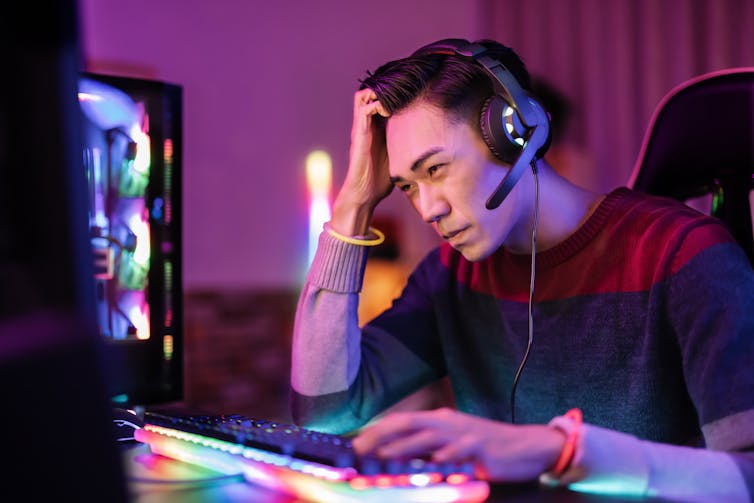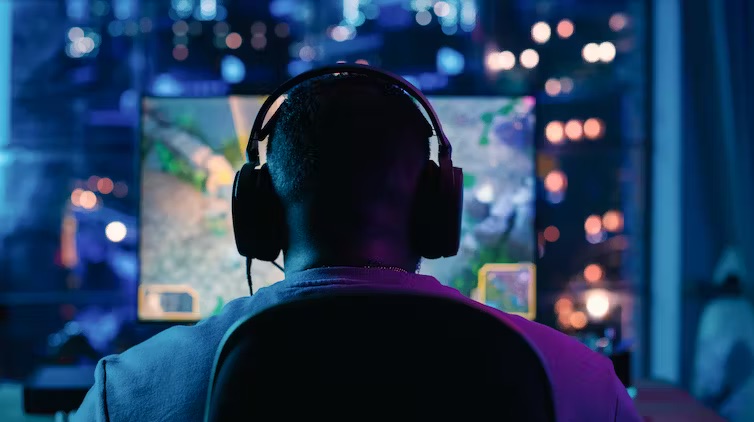Online gaming communities could be a vital lifeline for young men struggling silently with mental health issues, according to new research.
My colleagues and I analyzed an all-male online football gaming community over the course of a year. We discovered that members who reported more depressive symptoms and less real-life support were roughly 40% more likely to form and maintain social ties with fellow gamers compared with those reporting more real-life support.
This finding suggests the chat and community features of online games might provide isolated young men an anonymous “third place” – or space where people can congregate other than work or home – to open up, find empathy and build crucial social connections they may lack in real life.
Why it matters
Mental health issues like depression and suicide are on the rise among young men in the U.S., yet social stigmas and traditional masculinity often inhibit them from seeking professional assistance. Up to 75% of people with mental illnesses go without treatment, with men especially unlikely to pursue counseling or therapy.
Online social spaces, like gaming communities, may offer an alternative avenue to find connection and discuss serious personal problems without the barriers of formal mental health services. The social features of online games allow players to privately chat and build friendships, potentially creating vital informal support networks. While not a substitute for professional care, these virtual forums could encourage discussion of mental health challenges among young men facing social isolation and untreated depression.
More comprehensive research is still needed, but the social features of online games may literally provide young men a lifeline when they have nowhere else to turn.
How we do our work
We asked members of a small online gaming community to tell us specifically who in the community they talked to about important life matters. Using an open-ended survey, we then asked about these conversations. We also asked them to report how often they felt certain depressive symptoms, as well as their feelings on in-person and online social support.

We found some members discussed deeply personal and sensitive topics with each other. Many mentioned talking about struggles like stress, anxiety and depression. Some brought up relationship problems they were facing with romantic partners or family members. Others sought advice on major life decisions related to jobs, moving or going back to school.
Several participants specifically said they confided about topics they felt unable to discuss with people in their real lives, suggesting these online friendships provided an outlet they were otherwise lacking. The depth of sharing indicates these online friendships had moved beyond superficial topics into deeper emotional support and bonding.
What still isn’t known
Our research was limited to 40 male participants interested in college football video games. Further investigations using larger, more diverse samples across various gaming genres are needed to confirm these preliminary findings.
A key question is whether online social support directly improves depression – or are depressed individuals simply more inclined to seek connections virtually? Despite a massive industry and audience for online gaming, its mental health impacts remain murky.
What’s next
My colleagues and I are launching studies that analyze the impact of multiplayer games on teamwork, leadership and social skills in high school and college students compared with traditional extracurricular activities. We are also investigating how involvement in esports can cultivate lasting social relationships and foster a sense of community.
Through multiyear studies, we hope to understand online gaming’s risks – alongside its promise for improving mental health, social integration and life skills.
![]()







